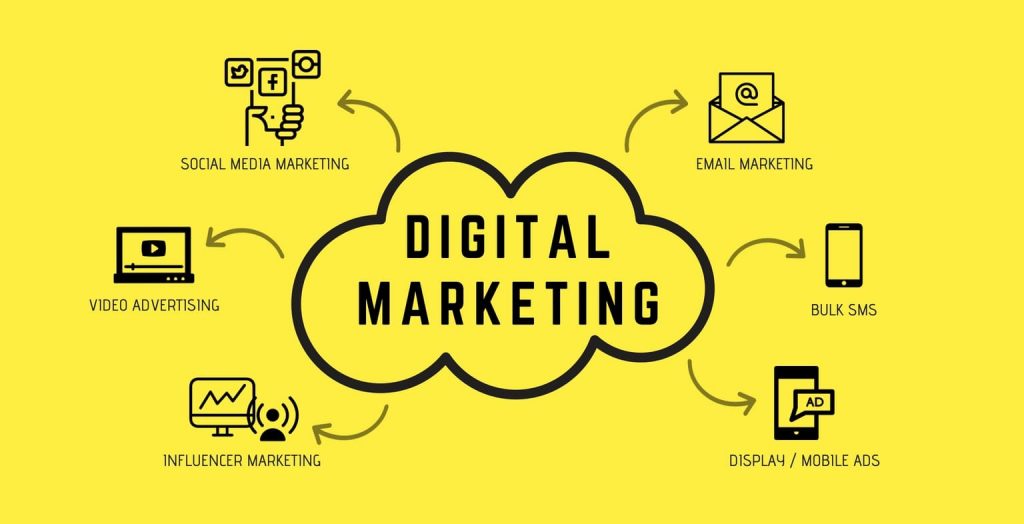In the ever-evolving landscape of modern business, staying ahead requires more than just a good product or service. It necessitates a deep understanding of customer behavior, preferences, and trends.
Enter the dynamic duo that’s revolutionizing the way businesses operate: Analytics and Marketing. This article delves into the symbiotic relationship between these two realms and sheds light on why collecting and analyzing data is pivotal for developing and enhancing an effective marketing strategy.
The Data-Driven Renaissance
In an era where data reigns supreme, every action a customer takes leaves behind a digital footprint. From website clicks and social media interactions to purchase history and engagement metrics, the sheer volume of available data is astounding. This treasure trove of information, when harnessed correctly, is a goldmine for businesses striving to gain an edge in the market.
The potential of data analytics has been unlocked by advanced technologies such as artificial intelligence and machine learning. These tools can process vast amounts of data at speeds unimaginable just a few years ago. This capability allows businesses to gain insights from data in real-time, enabling them to make informed decisions on the fly.
The Art of Understanding Customers
Marketing isn’t a shot in the dark anymore. Analytics paints a comprehensive picture of who your customers are, what they want, and how they behave. Through demographic segmentation, purchasing patterns, and sentiment analysis, businesses can tailor their marketing efforts to resonate with specific customer groups. This laser-focused approach not only drives customer engagement but also boosts conversion rates.
Moreover, analytics can unveil unexpected customer segments that might have been overlooked otherwise. This opens up new avenues for expansion and growth that might not have been apparent without the data-backed insights.
For instance, a traditional product aimed at a specific age group might find a previously unnoticed resonance among a different demographic, all thanks to the analytical revelations.

Precision Personified: Targeted Campaigns
Gone are the days of generic, one-size-fits-all marketing campaigns. Analytics empowers businesses to craft campaigns that resonate deeply with individual preferences. By analyzing data, marketers can identify high-potential leads, personalize content, and optimize delivery channels. The result? Higher ROI, lower marketing costs, and a more satisfied customer base.
Take, for instance, email marketing. By analyzing customer behavior and engagement with previous emails, businesses can send targeted messages that cater to individual interests. This personalization not only increases the likelihood of conversion but also enhances the overall customer experience.
Predictive Insights: Peering into the Future
Analytics isn’t just about understanding the present—it’s about predicting the future. By analyzing historical data and spotting patterns, businesses can forecast trends and anticipate customer needs. This foresight allows for proactive marketing strategies, ensuring that businesses are prepared to meet customer demands before they even arise.
Predictive analytics can revolutionize inventory management and product development. By analyzing past sales data and correlating it with external factors such as seasons and economic trends, businesses can adjust their production and stocking levels to match anticipated demand. This minimizes overstocking or understocking issues, leading to increased efficiency and cost savings.
Evolution through Feedback Loops
The marriage of analytics and marketing isn’t a one-time affair; it’s an ongoing partnership that thrives on feedback loops. Data from marketing campaigns provides invaluable insights into what works and what doesn’t. This information guides continuous improvement, enabling businesses to tweak strategies and tactics for optimal results.
Customer feedback, social media engagement metrics, and conversion rates can all be tracked and analyzed to refine marketing strategies. If a particular campaign doesn’t yield the expected results, the data-driven approach allows businesses to identify the weak points and make the necessary adjustments for future endeavors.
Maximizing Marketing ROI
In a business landscape where resources are often constrained, every penny spent on marketing must count. Analytics serves as the compass that steers investments in the right direction. By identifying which marketing channels yield the highest returns and which ones fall short, businesses can allocate their budget strategically, avoiding wastage and ensuring a higher return on investment.
For instance, through analytics, a business can determine whether its social media advertising budget should be directed towards Instagram, Facebook, or Twitter based on which platform generates the most engagement and conversions. This precision prevents scattergun spending and focuses resources where they’ll have the most impact.

Adapting to Dynamic Market Shifts
Markets are in a constant state of flux, and businesses must be agile to stay relevant. Analytics equips businesses with the ability to track market shifts in real-time. By analyzing changing consumer behaviors and emerging trends, marketers can swiftly adapt their strategies to seize new opportunities and mitigate potential threats.
The COVID-19 pandemic demonstrated the importance of adaptability. Many businesses, through data-driven insights, swiftly pivoted their marketing strategies to align with changing consumer behaviors due to lockdowns and restrictions. By staying attuned to data, businesses can anticipate similar shifts in the future and proactively respond.
The Unbreakable Bond
In the grand tapestry of business success, the connection between analytics and marketing is the unbreakable thread that weaves growth and innovation. The data-driven insights garnered through meticulous analysis empower businesses to create targeted campaigns, understand customers on a profound level, and navigate the unpredictable currents of the market.
As we continue to embrace the digital age, this synergy will remain at the heart of strategic decision-making, propelling businesses toward unprecedented heights of achievement. The businesses that master the art of marrying analytics and marketing will not only survive but thrive in this era of constant change and limitless possibilities.












Understanding the dynamic synergy between analytics and marketing is crucial. By leveraging customer data, businesses can craft targeted marketing campaigns with a higher chance of success. Additionally, data analytics can help predict trends, enabling businesses to be proactive in their marketing efforts.